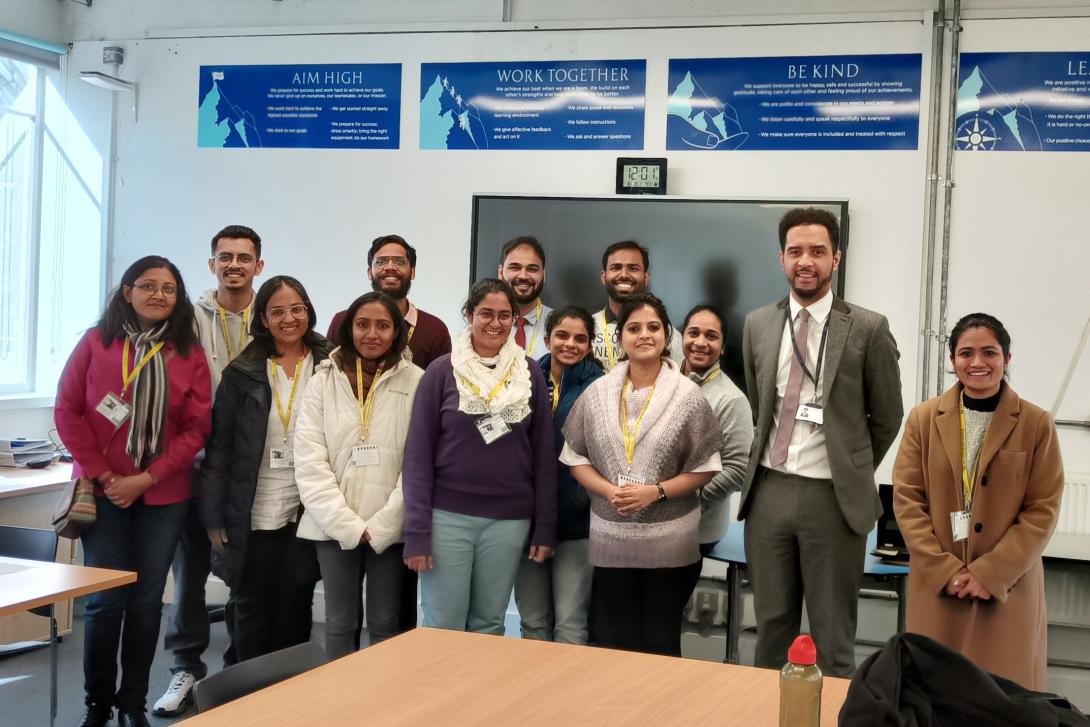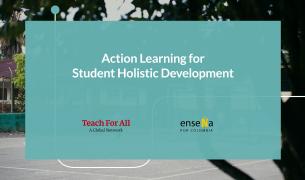Leaders and learners: Teach For India alumni principals visit peers in the UK

Earlier this year, I along with nine other school principals and vice principals from iTeach Schools, a school network founded and led by Teach For India alumni, visited London to immerse ourselves in the vision of excellence offered by schools and institutions founded by Teach First alumni and bring back the relevant learning to our network of 11 schools in Pune and Mumbai.
At iTeach Schools, all educators work towards leveling the playing field for students from the most under-resourced communities. In this effort, it is instrumental for our school leaders to continuously learn how to improve the quality of their schools through expanding their access to a wider global network of school leaders with whom to exchange best practices.
Inspiration x 7
While in London, we had the opportunity to visit a very interesting mix of schools and institutions launched and led by Teach First alumni. Among these were schools like Reach Academy, Oasis Academy South Bank, and King Solomon Academy that have a strong focus on supporting students to gain acceptance to top colleges—the curriculum, culture, and staff development all aligned to that mission. iTeach Schools has a very similar focus, and our school leaders learned a great deal about how to improve some existing areas of our work, such as tools and platforms to simplify and document systems and processes; brilliant insights about teacher coaching practices and how school leaders can make clear hard choices about what will become a part of the school and what won’t (“Do less, well”); and a powerful example of an after school community center where parents can get help in better supporting their children, from prenatal care to supporting at-risk households.

London Screen Academy, School 21, Ada, the National College for Digital Skills, and Skills Builder were institutions that pushed our group’s thinking around how to truly integrate the world that our students consume and contribute towards into their education. These schools and organizations share a focus on and are intentional about the visible social, cultural, and academic impact of students creating meaningful work through a rigorous project-based learning curriculum that integrates performance and visual arts into core subjects. On our visits, we witnessed a culture centered on reducing the power struggle between teachers and students.
What stood out across all seven schools and institutions was the fact that irrespective of the kind of school one wants to run, high quality teaching is at the core of ensuring student success, however it’s defined. All school leaders put their bets on their teachers being excellent facilitators and mentors for the students.
Bringing our learnings back to iTeach
Upon returning home, our group immediately synthesized the big ideas we took away from the visit and facilitated spaces with our extended leadership group to maximize sharing and learning. Our plan is to contextualize and implement two to three bold initiatives in our respective schools during the 2023-24 school year, thereby strengthening the iTeach Schools network.
“Visiting different schools in London helped me reinforce so many things that we were doing right in our schools,” shared Aprajita Gupta, one of the school leaders in our group. “At the same time, it also helped me understand how much more depth has yet to be achieved in some of our existing systems. Now, I have a much deeper understanding of some very essential elements that bring an excellent school together.”
Soumya Jain, the Founder and CEO of iTeach Schools and a Teach For India alumnus, has also experienced the impact of the principals’ visit to London, even though he was unable to participate in the trip himself. “One of the things that the principals found common across the successful school leaders [they met in London] was their conviction in their own vision and their ability to execute that vision with fidelity,” Soumya explained. “That has enabled a lot of iTeach principals to be more in tune with what their school leadership team believes and correspondingly create a really contextual vision based on their strengths and what they need to do. This is one of the outcomes I’ve seen that are less tangible than the more concrete examples, but are just as valuable as when I think about where iTeach is going.”


